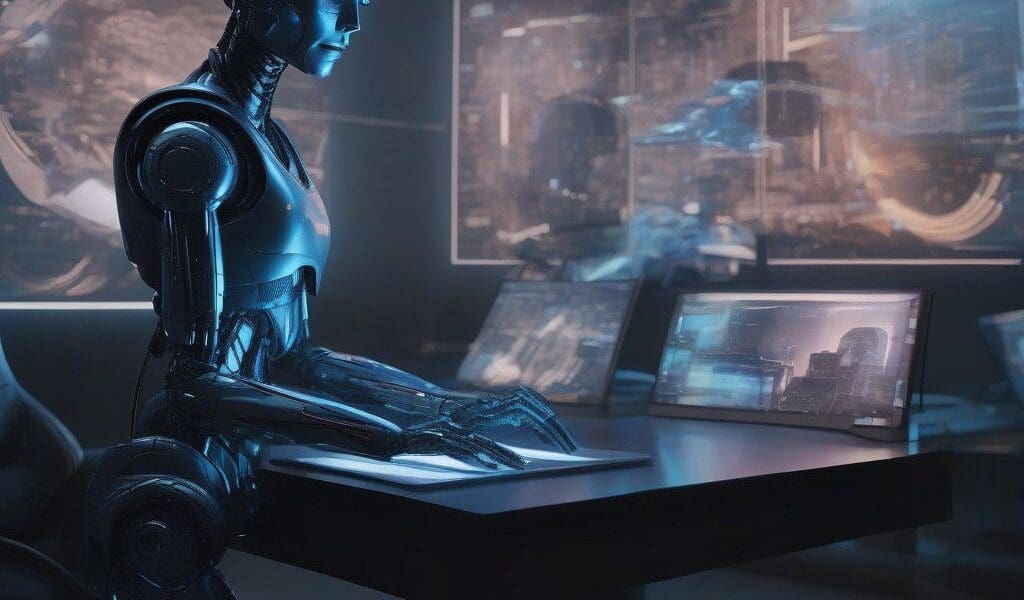Blade Runner Producer Takes Legal Action Over AI Image Use
In a significant move within the digital landscape, Alcon Entertainment, the producer behind “Blade Runner 2049,” has launched legal action against Tesla and Warner Bros. The lawsuit, filed in California, alleges unauthorized use of AI-generated imagery closely resembling scenes from the acclaimed sci-fi film in connection with the promotion of Tesla’s new autonomous cybercab. This action not only raises important questions about copyright infringement but also emphasizes the growing need to navigate the grey areas of digital content usage and brand protection.
The heart of the lawsuit lies in claims of misleading advertising. Alcon asserts that Tesla’s use of these AI-created visuals without permission implies an official partnership between Tesla and the Blade Runner franchise. Such implications can confuse consumers and brand partners, particularly in light of Alcon’s upcoming projects, including a new series, “Blade Runner 2099,” set to be released on Amazon Prime.
The situation escalated after Alcon denied Warner Bros.’ request to use official “Blade Runner” images for Tesla’s promotional event. Despite this clear rejection, Tesla proceeded to use AI technology to create visuals reminiscent of the original film. This decision prompted Alcon’s legal team to argue that the AI-created visuals misrepresent the Blade Runner brand and cause potential financial harm to their investments, which reportedly total several hundred million dollars over the years.
This lawsuit exemplifies the tension between technological advancement and intellectual property rights. As AI continues to evolve, so does its ability to generate content that can closely mimic existing works. Therefore, the question arises: how should companies protect their intellectual property in a world where AI can produce art and images that resemble established brands and narratives?
Legal experts assert that this case will likely hinge on the definitions of copyright infringement and fair use. Current U.S. copyright laws provide for protections against unauthorized use of copyrighted content, primarily focusing on whether the new work is transformative enough to not infringe on the original. However, the rapid evolution of AI raises dilemmas surrounding those definitions. If AI can generate original content that closely mirrors another work, does that constitute a derivative work or an original one?
In a broader context, this lawsuit highlights the challenges companies face when integrating AI technologies. Brands embarking on innovative marketing strategies need to consider their legal positioning carefully. Failure to do so could lead to litigation, resulting in not only financial implications but also potential harm to brand reputation.
Consider the case from a marketing perspective as well. Tesla is known for its forward-thinking approach—pushing boundaries in technology, sustainability, and transportation. However, if they lose their case, it can negatively impact their branding strategy and relationship with consumers.
The potential outcomes of this lawsuit could set a precedent for future use of AI-generated materials in marketing and advertising. Companies may want to reconsider their approach to working with AI tools, ensuring they are not only innovative but also compliant with intellectual property rights. This scenario is emblematic of the fine line businesses must walk between creativity and legal liability.
Moreover, it’s crucial to reflect on the wider implications of this case. The outcome could influence how the entertainment industry approaches collaborations with tech companies as both parties navigate the complexities of shared ideas and images. The case also calls into question the role of brand identity in an ever-complex digital world where AI can artificially recreate or reinterpret established properties.
As the legal proceedings unfold, industry observers will be keen to see how the specifics of copyright law are applied to this rapidly changing technological landscape. A ruling in favor of Alcon could lead to more stringent regulations around the use of AI-generated imagery, while a ruling in favor of Tesla might pave the way for broader interpretations of what constitutes fair use in the age of artificial intelligence.
This significant legal development represents a critical junction at which technology meets creativity. As corporations and legal frameworks continue to adapt to the challenges posed by rapidly evolving technologies, the outcome of this case may well shape the future of content creation and copyright in the digital marketplace.








